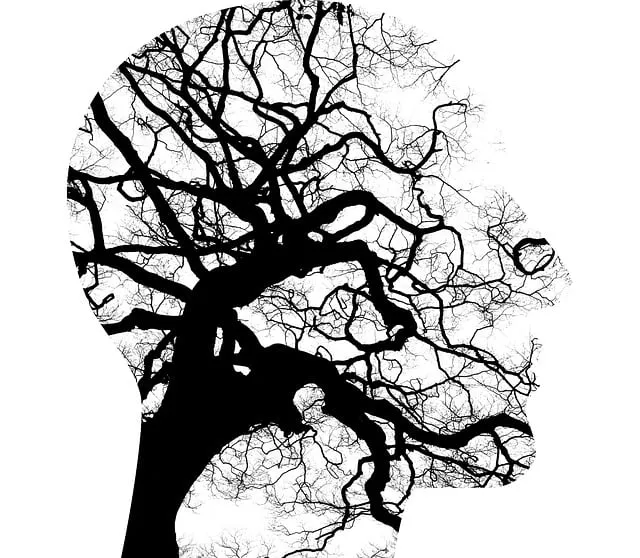Cultural sensitivity is crucial for mental healthcare providers, especially in diverse cities like Louisville. Kaiser Permanente's approach excels by training therapists in self-awareness, bias mitigation, and tailored cultural care, ensuring an inclusive environment. Their strategies, including emotional intelligence training and holistic well-being promotion, meet individual needs while fostering trust. Overcoming challenges like language barriers and biases is key, with ongoing education and interpreter services. This commitment to diversity makes Kaiser a leader in Louisville, providing culturally competent care that strengthens community mental health awareness. The question "does Kaiser have good therapists in Louisville?" highlights the importance of such inclusive practices in ensuring quality healthcare for all.
Cultural sensitivity in mental healthcare is essential for providing effective treatment and building trust with diverse patients. This article explores key aspects of cultural competence, using the Kaiser Model as a framework for understanding diversity and inclusion. We delve into challenges faced by therapists offering culturally sensitive care in Louisville, presenting strategies to enhance sensitivity among mental health professionals. Additionally, we discuss evaluating success through quality of care assessments in diverse settings, considering how Kaiser’s approach can inform best practices.
- Understanding Cultural Sensitivity in Mental Healthcare
- The Kaiser Model: A Look at Their Approach to Diversity and Inclusion
- Challenges Faced by Therapists in Providing Culturally Competent Care
- Effective Strategies for Cultivating Cultural Sensitivity among Mental Health Professionals
- Measuring Success: Evaluating the Quality of Care in Diverse Settings
Understanding Cultural Sensitivity in Mental Healthcare

Cultural sensitivity in mental healthcare involves understanding and respecting the unique beliefs, values, and practices of individuals from different backgrounds. It’s more than simply providing bilingual services; it requires therapists to be aware of their own biases and to create a safe, inclusive environment for all clients. In Louisville, where Kaiser offers mental health services, cultural sensitivity is crucial in ensuring that diverse communities feel heard and supported.
When therapists integrate self-awareness exercises and participate in ongoing mental health education programs designed with cultural sensitivity in mind, they can better address the specific needs of their clients. This might include recognizing how societal norms influence emotional expression, adapting therapy techniques to align with cultural traditions, and providing resources that resonate with different communities. Such efforts not only improve therapeutic outcomes but also build confidence and foster a deeper connection between therapists and their patients.
The Kaiser Model: A Look at Their Approach to Diversity and Inclusion

The Kaiser Model represents a leading approach to diversity and inclusion in mental healthcare. As one of the largest health care providers in the United States, Kaiser Permanente is committed to ensuring that its services are accessible and culturally sensitive to patients from various backgrounds. Their strategy involves training their therapists and mental health professionals on emotional intelligence, resilience-building techniques, and emotional well-being promotion methods tailored to diverse communities. This holistic approach not only addresses individual patient needs but also fosters an inclusive environment where folks from all walks of life feel seen and heard.
By prioritizing cultural sensitivity, Kaiser aims to bridge the gap between healthcare providers and patients who may have different values, beliefs, or language preferences. Specifically, their training programs emphasize understanding cultural nuances, recognizing implicit biases, and adapting therapeutic practices to meet the unique needs of patients in Louisville and beyond. This dedication to diversity and inclusion does Kaiser have good therapists in Louisville, making it a model for other healthcare organizations looking to improve their mental health services.
Challenges Faced by Therapists in Providing Culturally Competent Care

Providing culturally competent care presents unique challenges for therapists, especially when working with diverse populations. In Louisville, where a vibrant mix of cultures coexists, mental healthcare professionals at Kaiser or any other facility must navigate complex ethical and practical issues. One significant hurdle is understanding cultural nuances and beliefs that may influence a patient’s perception of mental health and the effectiveness of traditional therapy approaches. For instance, some communities have different concepts of emotional expression and coping strategies, which can impact the therapist-client relationship.
The journey towards culturally sensitive practice also involves overcoming biases and stereotypes. Therapists must continually educate themselves about various cultural backgrounds to avoid assumptions that could hinder progress. Additionally, language barriers require interpreters or multilingual resources, ensuring effective communication. Public awareness campaigns and ongoing training sessions focused on these topics can help improve the quality of care, making mental wellness journaling exercises more inclusive and beneficial for all patients, including those from diverse cultural backgrounds, in Louisville and beyond.
Effective Strategies for Cultivating Cultural Sensitivity among Mental Health Professionals

Cultivating cultural sensitivity among mental health professionals is an essential step to providing quality care, especially in diverse communities like Louisville, where does Kaiser have good therapists? This involves a concerted effort to understand and appreciate the unique cultural backgrounds of clients. One effective strategy is incorporating Compassion Cultivation Practices (CCP) into training programs. These practices encourage professionals to develop self-awareness and empathy, enabling them to respond sensitively to clients’ cultural needs.
Additionally, Empathy Building Strategies play a crucial role in fostering strong therapeutic alliances. Mental health professionals should actively listen, validate, and reflect on clients’ experiences, demonstrating genuine interest and understanding. By integrating these approaches, mental health services can better cater to the diverse population, ensuring that all individuals receive culturally responsive care. This, in turn, enhances client outcomes and strengthens the overall mental health awareness in the community.
Measuring Success: Evaluating the Quality of Care in Diverse Settings

Evaluating the quality of mental healthcare in diverse settings is a multifaceted process that goes beyond numbers and statistics. It involves assessing whether services meet the unique cultural needs of communities, ensuring therapists demonstrate empathy and understanding towards patients from various backgrounds. In the case of Kaiser in Louisville, success can be measured by the degree to which its therapists effectively communicate with clients from different ethnic, racial, and socioeconomic groups, tailoring their approach to foster trust and build a safe space for open dialogue.
This involves not just understanding cultural nuances but actively incorporating them into risk assessment practices for mental health professionals. Public awareness campaigns development and empathy building strategies play a crucial role in this process. By creating inclusive environments and employing culturally sensitive techniques, Kaiser can enhance the overall quality of care, making it more effective and accessible to all patients, regardless of their background or where they seek therapy, be it Louisville or beyond.
Cultural sensitivity is a cornerstone of quality mental healthcare, and understanding diverse cultural contexts is essential for providing effective treatment. As the demand for culturally competent care increases, mental health professionals in Louisville, like those at Kaiser, must embrace inclusive practices. Overcoming challenges through education, awareness, and adaptive strategies can lead to better patient outcomes. By measuring success through evaluation, we can ensure that therapists in Louisville are equipped to deliver care that respects and embraces various cultural backgrounds, ultimately fostering a more inclusive mental healthcare environment. This approach not only benefits individual patients but also enriches the overall community’s well-being.






